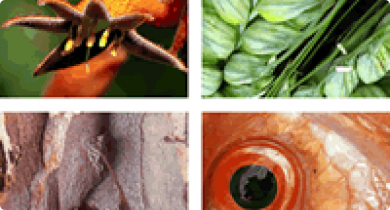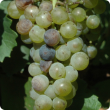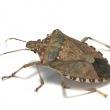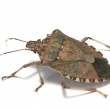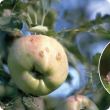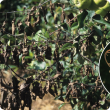Biosecurity
Biosecurity is fundamental for safeguarding our valuable agricultural resources against the threat and impacts of pests, weeds and diseases (pests).
Biosecurity is the management of the risk of animal and plant pests and diseases entering, emerging, establishing or spreading in Western Australia, to protect our economy, environment and the community.
To protect Western Australian agricultural industries from pests the Department of Agriculture and Food, Western Australia:
- Works with stakeholders to identify and manage biosecurity risks.
- Develops legislation.
- Establishes import controls.
- Conducts inspections.
- Provides quarantine services as required.
To find out more about what we do to protect agricultural production and export opportunities within the State please search our website.
Filter by search
Filter by topic
- Pests, weeds & diseases (251) Apply Pests, weeds & diseases filter
- Diseases (160) Apply Diseases filter
- Livestock biosecurity (155) Apply Livestock biosecurity filter
- Livestock & animals (144) Apply Livestock & animals filter
- Livestock health & diseases (113) Apply Livestock health & diseases filter
- Livestock disease surveillance (104) Apply Livestock disease surveillance filter
- Plant biosecurity (98) Apply Plant biosecurity filter
- Livestock species (98) Apply Livestock species filter
- Crops (76) Apply Crops filter
- Horticulture (66) Apply Horticulture filter
- Pests (65) Apply Pests filter
- Livestock management (60) Apply Livestock management filter
- Invasive species (45) Apply Invasive species filter
- Sheep (41) Apply Sheep filter
- Livestock movement & identification (41) Apply Livestock movement & identification filter
- Quarantine (38) Apply Quarantine filter
- Pest insects (37) Apply Pest insects filter
- Emergency animal disease preparedness (33) Apply Emergency animal disease preparedness filter
- Beef cattle (33) Apply Beef cattle filter
- Fruit (32) Apply Fruit filter
- Importing to Western Australia (28) Apply Importing to Western Australia filter
- Dairy cattle (25) Apply Dairy cattle filter
- Control methods (24) Apply Control methods filter
- Vegetables (20) Apply Vegetables filter
- Management & reproduction (19) Apply Management & reproduction filter
- Pest animals (19) Apply Pest animals filter
- Importing animals (18) Apply Importing animals filter
- Weeds (18) Apply Weeds filter
- Fungi (18) Apply Fungi filter
- Chemicals (18) Apply Chemicals filter
- Emergency response (18) Apply Emergency response filter
- Poultry & birds (16) Apply Poultry & birds filter
- Pigs (15) Apply Pigs filter
- Horses (14) Apply Horses filter
- Goats (13) Apply Goats filter
- Declared plants (13) Apply Declared plants filter
- Potatoes (12) Apply Potatoes filter
- Citrus (12) Apply Citrus filter
- Nursery & cutflowers (11) Apply Nursery & cutflowers filter
- Grapes & wine (11) Apply Grapes & wine filter
- Intrastate movement (10) Apply Intrastate movement filter
- Feeding & nutrition (10) Apply Feeding & nutrition filter
- Pest mammals (8) Apply Pest mammals filter
- Agricultural emergency response (8) Apply Agricultural emergency response filter
- Preventing residues (7) Apply Preventing residues filter
- Grains (7) Apply Grains filter
- Biosecurity governance (7) Apply Biosecurity governance filter
- Food, export & investment (7) Apply Food, export & investment filter

